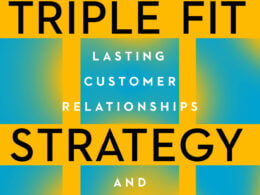For the fifth time that morning, I leaned over and hit snooze on my seemingly incessant alarm.
It was 7:30 a.m., and I had neither the energy nor inclination to get out of bed and go to work. This morning lethargy had crept up on me gradually over the preceding months and was now a standard routine.
As my girlfriend departed for work, I was still finding excuses as to why I didn’t have to mobilize just yet. Then it hit me! I had gone from being a motivated, engaged manager on the path to epic things; to an unfulfilled and apathetic employee.
My drive for success had dwindled and I was in danger of forgetting the bold entrepreneurial plans I had set myself. Something needed to change.
One step is all it took
Two years after that sleepy epiphany, I write to you from the airport en route to Mexico which, for the next three months, will be called home.
It is the ninth spectacular country my partner and I have lived in since we began our life as wandering entrepreneurs less than a year ago and represents the epic mental (and physical) shifts that have occurred since that significant morning.
What kick-started my journey from disillusioned employee to inspired, globe-trotting entrepreneur? Was it a financial windfall courtesy of an long-lost great aunt? Was I fired from my job in shameful, rock n’roll style circumstances?
Unfortunately, it was neither. As exciting as either scenario would be as a backstory for my new life, it was something far more mundane that changed everything. The answer? Books.
Yep, that’s all it was. Without any external factors at play, several thousand carefully crafted words was all it took to alter my mindset forever.
If you too feel compelled to reignite those fast fading dreams of entrepreneurship, check out the three most impactful books I read that reprogrammed my employee-orientated mind to an entrepreneur with full control over my own destiny!
Related: 10 Life-Changing Books Every Side Hustler Needs to Read in 2018
“Rich Dad Poor Dad: What The Rich Teach Their Kids About Money That The Poor and Middle Class Do Not” by Robert Kiyosaki
Not an original selection, I know. This book had the same impact on me as it has had millions of others around the world. If I were to omit it, it would be for the sake of originality only and would miss the point entirely.
Based on the contrasting education Robert Kiyosaki received throughout his childhood at the hands of his biological dad and his friend’s dad, the book highlights the fundamental difference between the way successful and unsuccessful people think, and the ultimate effect it has on their lives.
Topics include the importance of education and qualifications; the risks/rewards of a “stable” job; the power of financial leverage; what financial security actually means; and how best to pursue it, all covered via insightful, relatable stories.
The fact that the book is told in story form, citing real, personal examples makes the lessons in the book incredibly effective and memorable. Having such close insights into the minds of two paternal figures who were ultimately trying to achieve the same thing (financial security and freedom) but going about it in such different ways, afforded Kiyosaki a unique vantage point. It is this vantage point that makes the book so powerful.
Whilst Kiyosaki’s poor, biological father championed the accepted wisdom of “working for money,” his rich dad lived by the idea that your money should in fact, work for you!
This book opened my eyes to the significance of financial independence and the necessity of turning my relationship with money on it’s head.
Once finished, I knew my path to success was through entrepreneurship. Taking control of my own time and money and leveraging it to my advantage; essentially becoming the master of my own destiny, not a slave to someone else’s.
“The 4-Hour Workweek” by Tim Ferriss
If “Rich Dad, Poor Dad” was a massive slap in the face that resulted in an about-turn in my feelings toward financial freedom, “The 4-Hour Workweek” provided the inspiration for how to get there.
Written in 2007, Tim Ferris convolutedly charts his course from a small business owner working frantically to appease both suppliers and clients; to a vagabonding entrepreneur, who Jedis his way around the world, leveraging his time and his money to maximum effect whilst his business pretty much runs itself.
Of the numerous takeaways I got from this book, by far the most impactful was the realization of what is actually possible if you simply ignore the naysayers who are crippled by their own limiting beliefs, and look at things through a different lens.
Do you struggle to believe a life of globe-trotting entrepreneurship is beyond you? A lifestyle reserved only for the well-to-do or talented few? This book uses real world examples and relatively easy-to-follow steps to blow that theory into the water.
It is a testament to the influence the book has had that so many of it’s teachings are now considered standard practice for entrepreneurs, yet were very much against the grain when first published.
These teachings include concepts such as the power of outsourcing; the importance of your time and how best to maximize it; the beauty and power of simplicity; and practical tips on how to set up and automate a business.
If you are on the fence about becoming a digital nomad and need a gentle push, this book is the one for you!
“Secrets Of A Millionaire Mind” by T. Harv Eker
When times get tough, who do you blame? Yourself or those around you? How much value do you place on personal growth and education? If you came into a lot of money, what would you do with it? When someone says the word millionaire, what is the first thing that springs to your mind?
These are just a few of the questions T. Harv Eker asks throughout this book. By asking these, and many more, he claims to be able to predict your financial future by establishing what he calls your “money and success blueprint.”
According to the author, unless you proactively alter it, your upbringing has already created a blueprint that determines your ability to obtain and retain money.
Statistics all over the developed world bear out the sad truth that Eker espouses: that the vast majority of people have a limiting approach to money, and often negative feelings towards those that possess it. It is these aspects of our makeup that will forever handicap our ability to achieve true wealth and success.
Upon bringing to the attention the limitations our existing outlook often imposes on us, the book then serves to help re-design this blueprint and create a mindset conducive to huge growth.
Prior to reading this book, I had never paid attention to my own money and success blueprint. I wasn’t aware I even had one! Yet upon reflection, my upbringing (and my subsequent views around money) was heading me toward a life of decent wealth, in the comfort of the middle-class. Definitely not hardship, but not financial independence either.
This book changed that.
If “Rich Dad, Poor Dad” provided a compass and a direction in which to head, “Secrets Of A Millionaire Mind” was the map, providing details of the aspects of my mindset I needed to change to truly achieve what I wanted.
Sign Up: Receive the StartupNation newsletter!
Conclusion
If your house is your wealth, the foundation on which it is built is your mental toolkit. You may build a big, beautiful house quickly but without strong foundations it will topple before long.
Entrepreneurship is a fascinating, challenging and, if approached correctly, an immensely rewarding adventure. Read the books above to get your entrepreneurial mindset on track. Like me, you may never look back!






